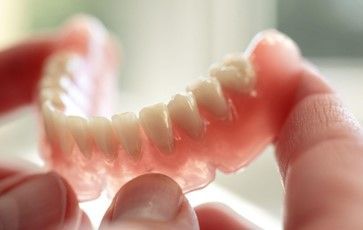How Mental Health Disorders Can Affect Your Oral Health
When you are diagnosed with a mental health disorder, whether it is depression, bipolar disorder, or even schizophrenia, the last thing on your mind is probably your oral health. However, what you may not know is that your mental health and the way it is treated can have a significant impact on your oral health as well.
If you have recently found that you are dealing with a mental health condition of any kind, you will need to learn and discover a great deal. One of the things you should keep in mind is how dealing with a mental health disorder (or several disorders) can impact your oral health and what you can do about it.
Learn more about the connection between oral health and mental health. Then, do what you can to maintain your oral health in the face of mental health problems.
Struggling With Mental Health Can Lead to Neglect
Mental health issues can be extremely tough to deal with, especially before a proper treatment program is in place. One of the first things to be pushed to the wayside when a person is extremely depressed, manic, or otherwise afflicted with mental health episodes is self-care.
Self-care includes activities such as brushing teeth and flossing. People in depressive episodes can go days or weeks without brushing their teeth or flossing. This can lead to numerous oral health problems. And if a person has longer depressive episodes or they occur frequently, the long-term effects can be extensive.
Mental Health Medications Can Cause Oral Health Issues
In addition to experiencing lapses in self-care, a person with mental health issues may also have to deal with the very real possibility that their medications can cause other oral health issues. Many atypical antipsychotics and antidepressants come with the potential for dry mouth. While dry mouth may just seem like a nuisance and an issue that causes discomfort, it can be much more than that.
Chronic dry mouth is a condition that results in a lack of saliva in the mouth. Without saliva in the mouth, the bacteria that inhabit a person's mouth are better able to proliferate and thrive. Severe gum decay and tooth decay can be the result of these issues.
Another common side effect of some mental health drugs is a symptom known as bruxism. Bruxism involves clenching and/or grinding the teeth. These medications can cause this to occur at any time, though it is common at night when sleeping.
Bruxism can cause severe damage to the hard exterior of the teeth and can even lead to breaks and fractures in the teeth. The grinding and clenching can leave the interior of the tooth exposed, which causes severe pain.
Dealing With Your Oral Health and Mental Health
Also, talk to your doctor about medications that might cause side effects. If your medications are effective for your mental health and do cause dry mouth or bruxism, treatment options are available. For dry mouth, there are specially formulated mouthwashes for people with the condition. Biotene and similar products that are essentially artificial saliva can also help.
For bruxism, you may want to talk to your dentist about bite guards and other headgear that you can wear when you are sleeping. This can help to prevent most of the damage that occurs with clenching and grinding your teeth.
And, of course, one of the best things you can do for your oral health when you struggle with mental health conditions is to continue to see your dentist twice a year for checkups and cleanings. Talk to your dentist about your mental health issues as well. Then, they can better help and support you.
Now that you know more about mental health and its relationship to oral health, you can be sure you are doing your best to manage both. Call your dentist at Advanced Dental Care today to schedule your next visit.










